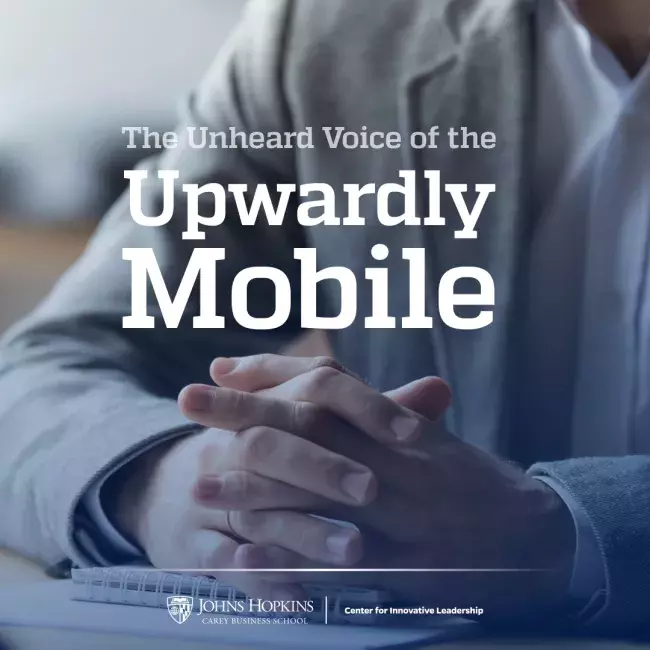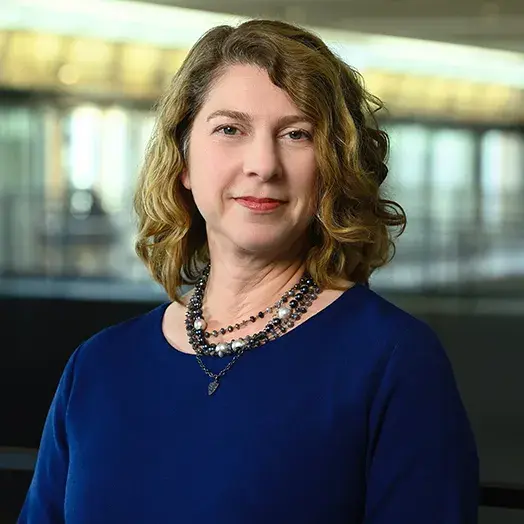Organizations committed to inclusivity and hearing varied opinions should be aware that upwardly mobile individuals in socially diverse professional environments, are often faced with hurdles to jump, for their views to be heard and heeded

The Unheard Voice of the Upwardly Mobile
Summary: In most fields of human endeavor, a strong sense of self-efficacy promotes accomplishment and personal well-being. Contrary to expectation, upwardly mobile individuals from lower social class backgrounds benefit from higher-than-average levels of self-efficacy. In a professional context, upwardly mobile people offer to speak up as frequently as those from elite social backgrounds. Unfortunately, this is often offset by the actions of managers who, rather than offering equal opportunities to contribute, tend to favor the voices of employees from higher social backgrounds. In this situation, upwardly mobile individuals must make significant efforts, jumping over barriers to have an equal voice. Due to their high self-efficacy, many, relishing the challenge, make the effort. However, managers should be aware that if decisions about whose input to solicit are unduly influenced by characteristics indicating employees’ social status it can stifle diverse opinion and lead to systematic disadvantages.
It has long been known that people from lower social class backgrounds seeking entry to prestigious universities or employment in professional firms can be disadvantaged by those evaluating them, due to a perceived lack of cultural fit. Social signifiers of class, such as where a person lives, their accent, or dress, their leisure activities, self-presentation styles, etc., can all determine selection or rejection. Less is known about how well those upwardly mobile people who manage to survive entry and move successfully into middle-class professional settings get on.
The evidence that does exist presents a bleak picture. Those from lower social class origins are often paid less for the same job than those from higher-class backgrounds, have greater difficulty ascending the career ladder, and are less likely to have a ‘voice’ (i.e. the unrestricted ability to air ones views and they be heeded) in the organization. This is bad for the individual and a problem for the company or professional firm. The upwardly-mobile will have valuable cross-cultural knowledge of both working-class and middle-class social environments, and missing their voice limits an organization’s access to diverse ideas and perspectives. This is also a wider social problem. Mobility is measurably less common now than it was in the past. In advanced western societies, that pride themselves on meritocracy and espouse the value of equal opportunities for all, any barrier to upward mobility should be unacceptable.
It has previously been thought that upwardly mobile individuals, from underprivileged backgrounds, have a reduced sense of self-worth and capacity imbued during their upbringing, and that their self-efficacy—belief in their ability to complete tasks and achieve goals—would be relatively low, rendering them less likely to voice their opinions. The working-class man or woman might not feel comfortable in the middle-class milieu of a university, a professional firm, or a boardroom. They might even experience a divided sense of belonging and feel out of place in both lower- and middle-class settings (a sense known to psychologists as a cleft habitus).
Researching workplace voice in relation to social background
A new study from Sean Martin, Donald and Lauren Morel Associate Professor at UVA Darden and Faculty Affiliate of the Center for Innovative Leadership at Johns Hopkins, contests this view. His study asks two questions. First, do the prior lower-class experiences of the upwardly mobile imprint them with a reduced sense of their own abilities and result in less voice, or does an upward transition correspond to a high general sense of efficacy that facilitates voice? Second, do managers view the upwardly mobile as equally valuable sources for input as other employees from higher-class backgrounds, or do they tend to provide more opportunities for input to those with elite pedigrees?
The central finding of Martin’s research is that upward mobility relates to voice via a strong sense of general self-efficacy, but that perceptions of competence and cultural fit constrain the opportunities for voice for the upwardly mobile. Martin contends that upwardly mobile individuals from underprivileged backgrounds do in fact benefit from higher-than-average levels of self-efficacy, and as a rule have no hesitation in speaking up or contributing. This being the case, when it is observed that the voice of people from lower social class backgrounds are less often heard, this would appear to be down to the decisions of managers to call on the voices of those from socially elite backgrounds more readily.
What appears to limit voice from the upwardly mobile is not their self-image or self-appraisal of their capacity but rather the opportunities provided by managers. The perceived openness of a manager, and the employee’s belief that their input may not be futile, can lower the barriers to being heard. The problem arises because managers with decision making authority solicit voice from employees with which they have a positive relationship, which will usually be people like themselves—since people tend to find cross-class interactions uncomfortable.
Organizational implications
In his research Martin found that the upwardly mobile, due to the cleft habitus effect, exhibit behaviors and cultural mores derived from their new, more privileged position, but still retain significant characteristics from their past class status. These retained elements are likely to influence their middle-class supervisors’ perceptions of their competence and cultural fit, such that their information may be seen as less valuable and more uncomfortable to obtain.
As leadership and management roles in professional firms and corporations are largely held by people from middle-class backgrounds—a situation exacerbated in recent decades as a university education has become de rigeur for career advancement—middle-class attitudes and perceptions tend to prevail. This is likely to be to the detriment of the voice of the upwardly mobile. Managers should make sure that their preference for associating with those with similar background and life experiences does not influence their professional judgment and actions.
The Center for Innovative Leadership (CIL) at the Carey Business School aims to advance knowledge and build capacity for innovative leadership in modern organizations. CIL is a hub for new ideas and insights on leadership, combining faculty-led research, student-facing programming, and community-focused impact.


